MBA401 Assessment: Analyzing Mark Zuckerberg's Leadership in Facebook
VerifiedAdded on 2022/12/18
|7
|526
|1
Presentation
AI Summary
This presentation analyzes Mark Zuckerberg's leadership, focusing on his role as CEO and co-founder of Facebook. It identifies key factors contributing to his success, such as his ability to inspire, confidence, and decision-making skills. The presentation also examines how his leadership effectiveness can be measured through employee morale and the creation of a positive work environment. Furthermore, it explores how Zuckerberg's unique leadership style, including the adoption of a flat organizational structure and adaptive leadership theory, has contributed to Facebook's organizational success. The analysis draws upon various academic sources to support its claims and provides a comprehensive overview of Zuckerberg's leadership approach.
1 out of 7

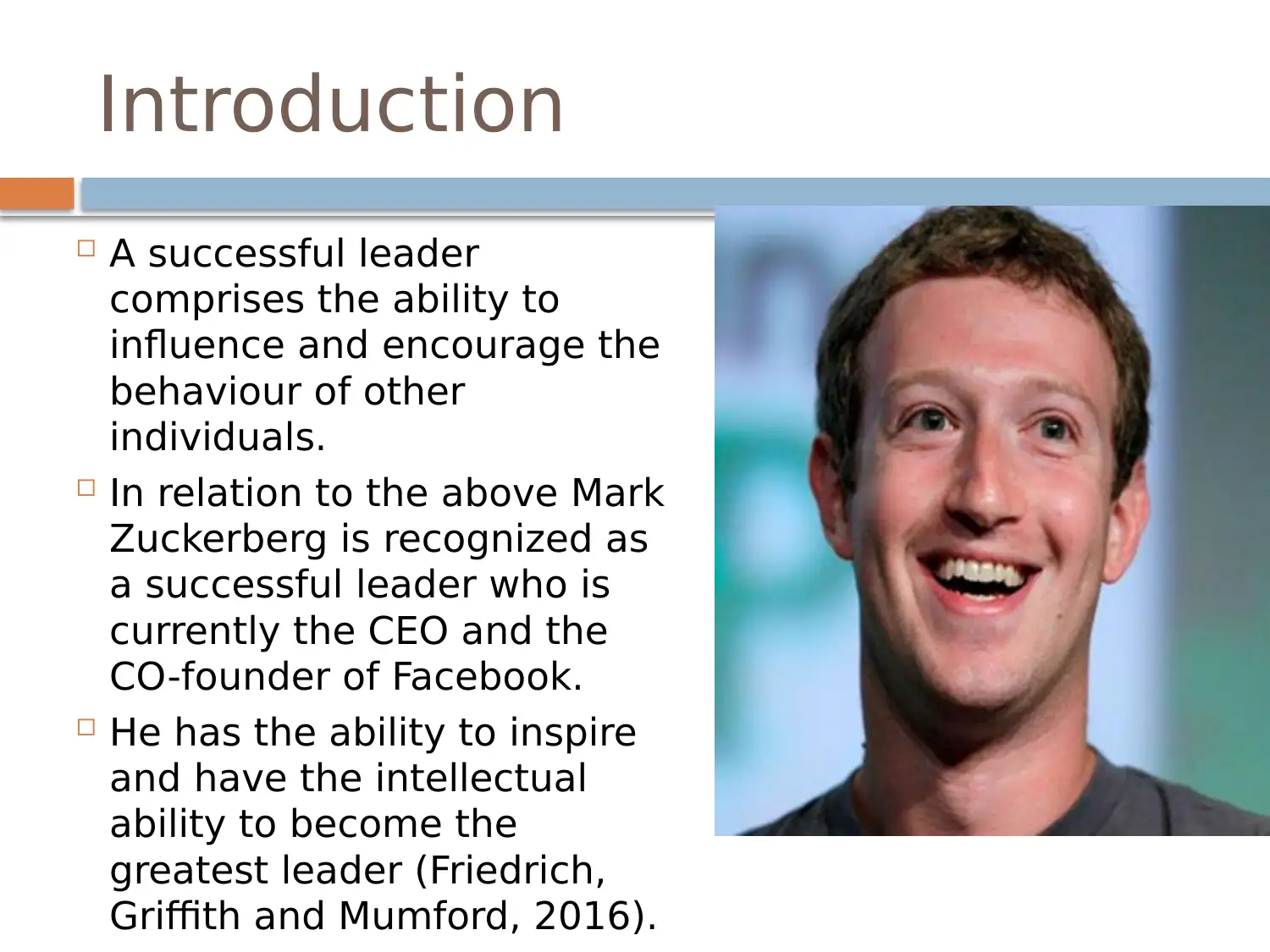
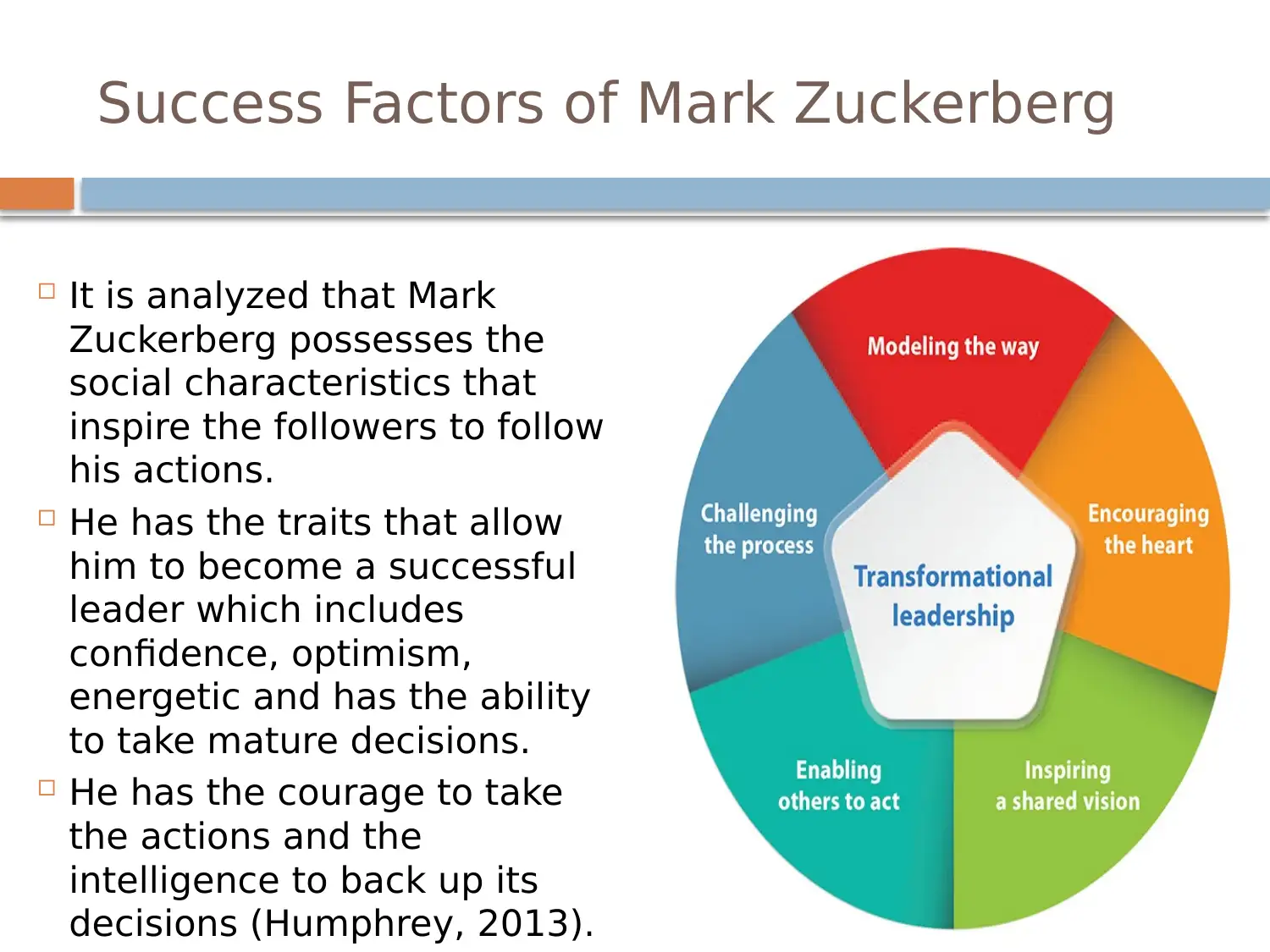

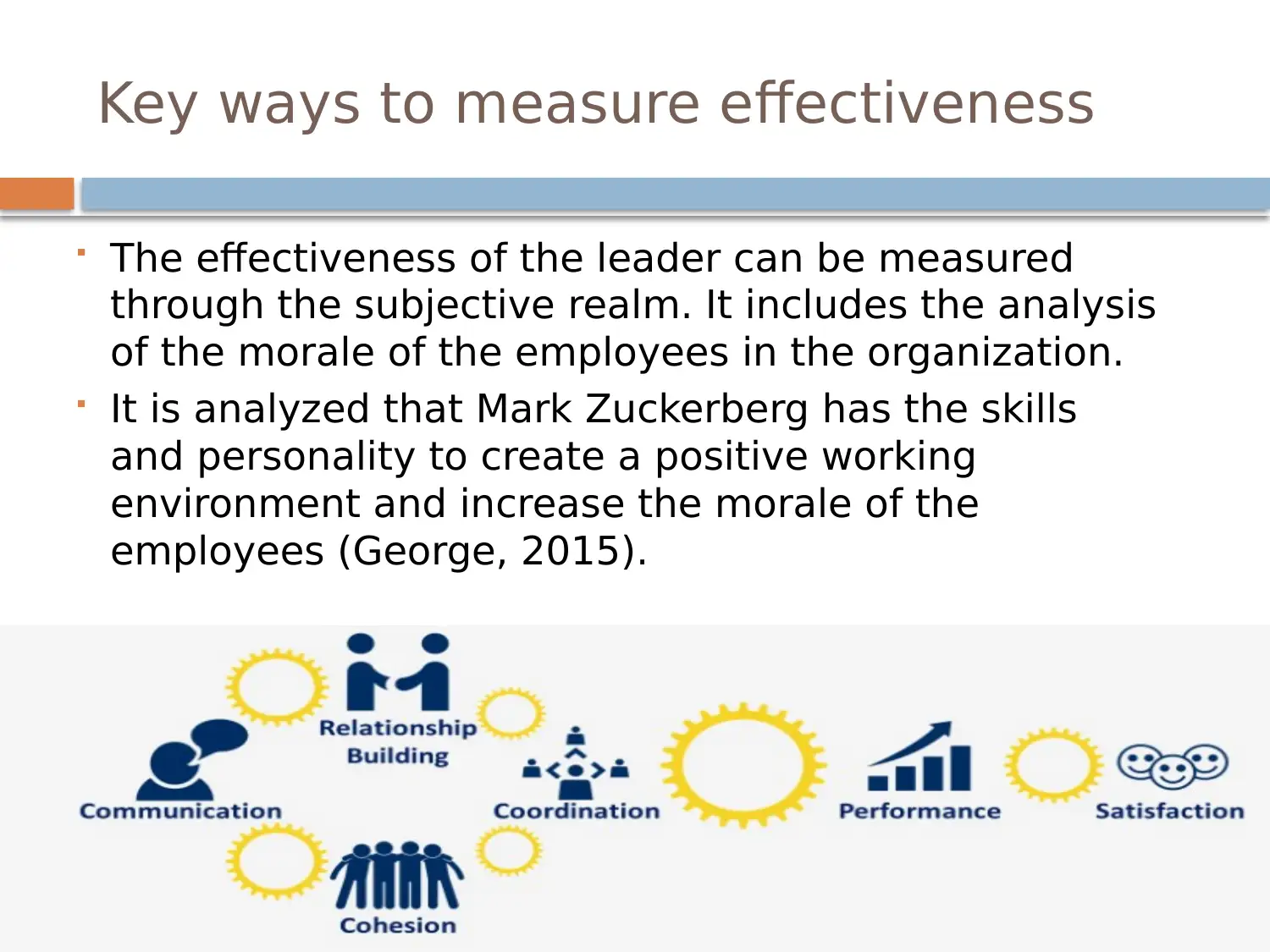
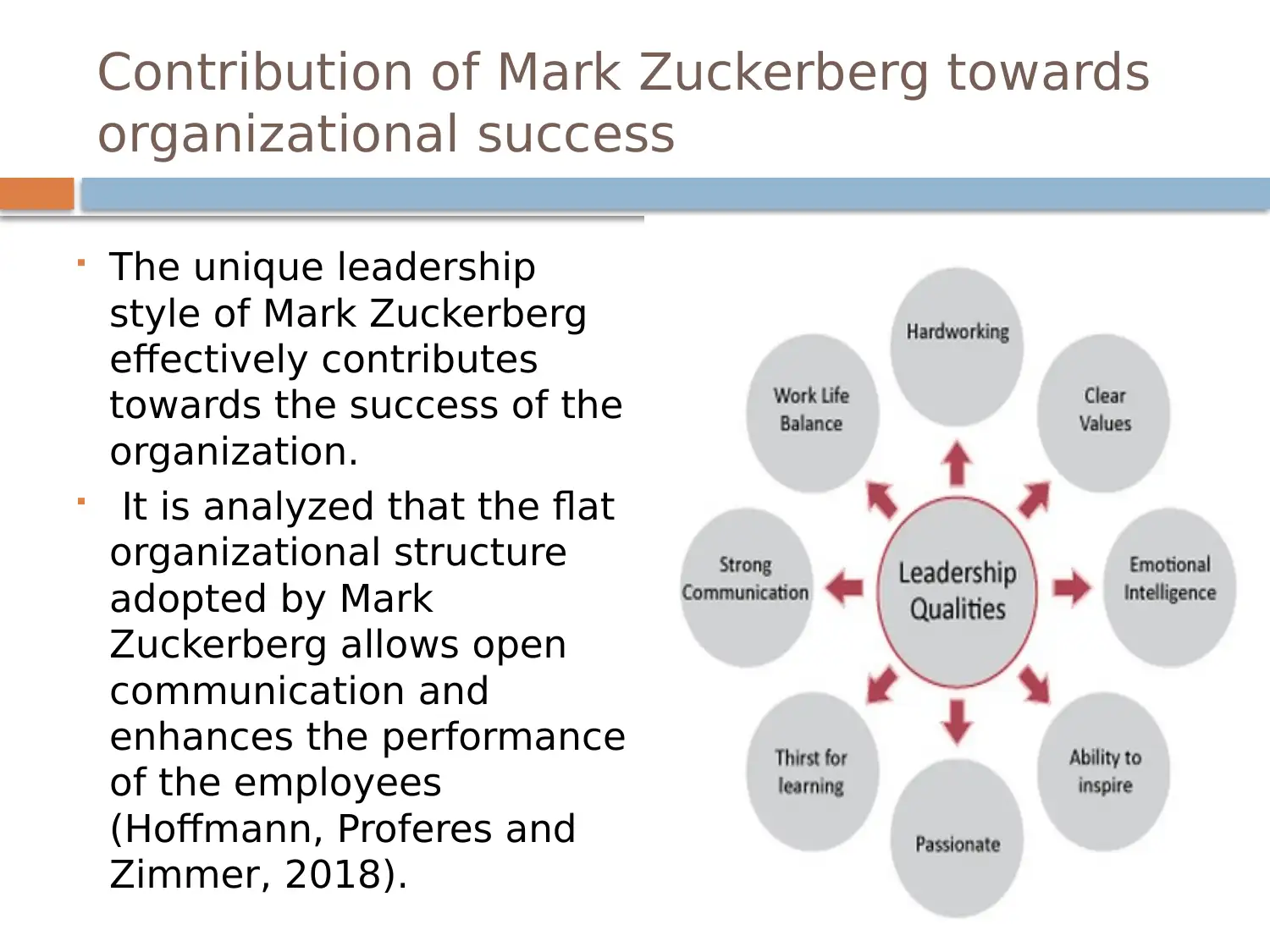
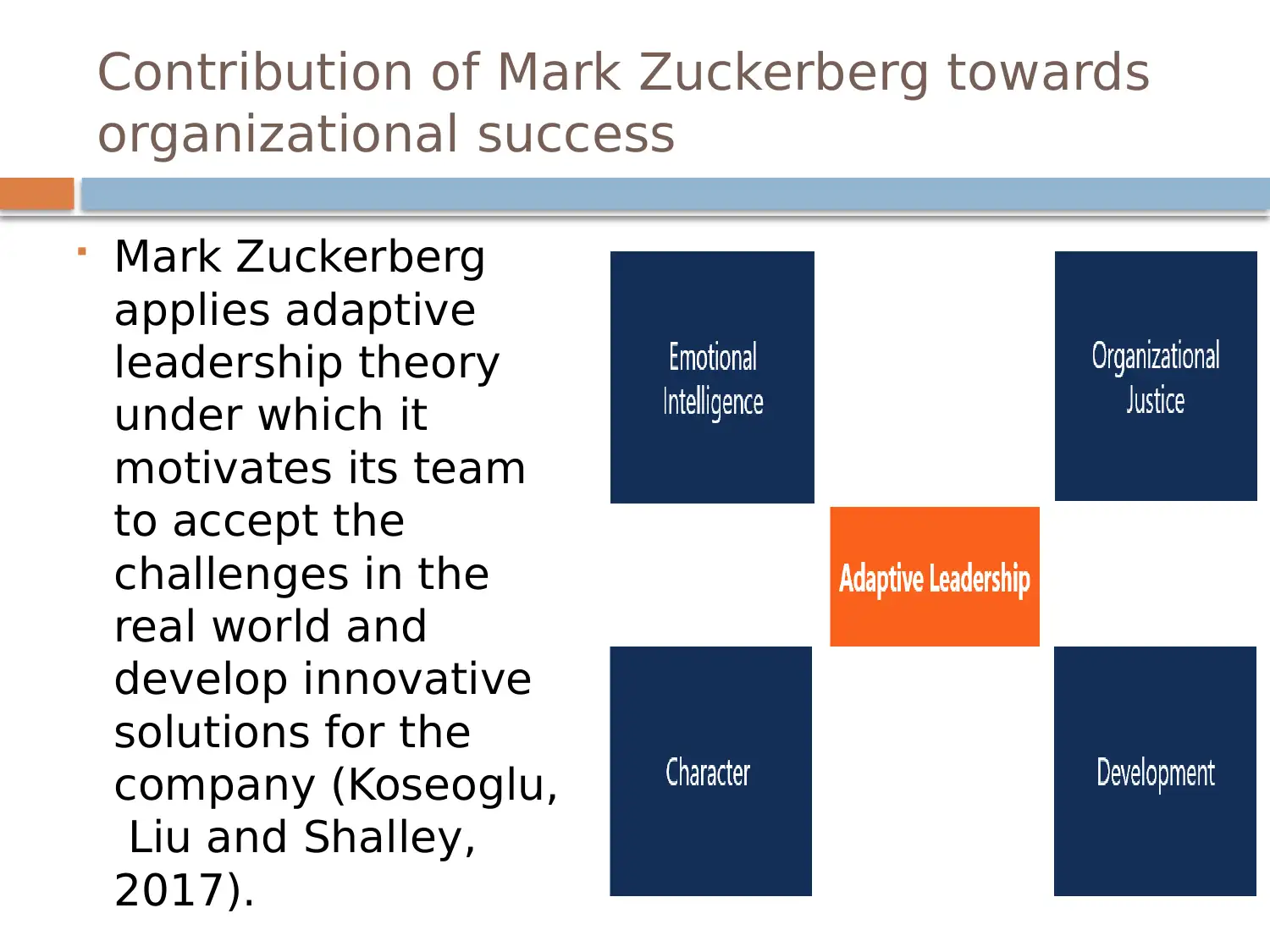
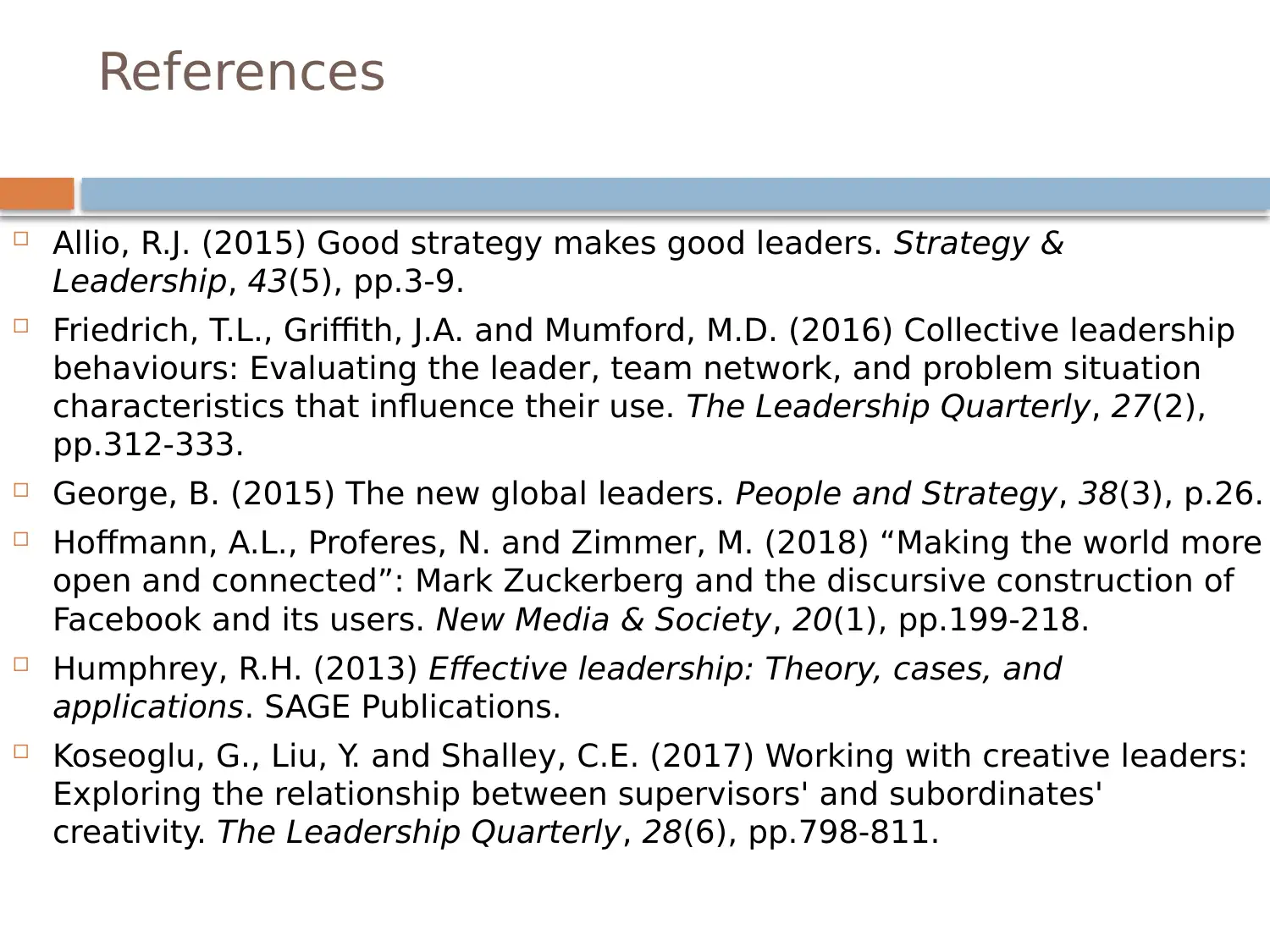

![[object Object]](/_next/static/media/star-bottom.7253800d.svg)